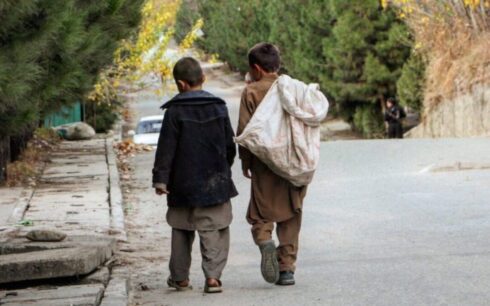UN aid chief Martin Griffiths will visit Afghanistan in the coming weeks and seek to meet the highest possible officials within the Taliban-led administration after it banned women from working in non-governmental organizations, Reuters reported on Thursday, quoting a senior UN official.
“We regret to see that there is already an impact of this decision on our programs,” Ramiz Alakbarov, UN aid coordinator in Afghanistan, told reporters in New York after the United Nations said that some “time-critical” programs had temporarily stopped and other activities will also likely be paused in the country.
Alakbarov said women made up roughly 30% of aid workers and that they would not be replaced by men. He added that the “humanitarian needs of the people are absolutely enormous and it’s important that we continue to stay and deliver.”
According to the United Nations, 97% of Afghans live in poverty, two-thirds of the population need aid to survive and 20 million people face acute hunger.
He said that UN officials are meeting with ministries to discuss the impact on aid programs and that a meeting with the health minister about the delivery of services for women and girls by female aid workers had been “rather constructive.”
“We already had an agreement with the minister that in that sector there should not be a barrier and the service providers may return to work. Now let’s see how this is going to play out,” Alakbarov said as quoted by Reuters. “The discussions with other line ministers have not yielded the same results yet, but they are ongoing.”
He said he would be focused on talking with the Taliban-led administration to try and get the ban reversed because they responded better to dialogue instead of pressure, adding: “This movement has not responded well to the pressure in the past.”
Alakbarov said that 70% of U.N. programs were implemented in partnership with other aid organizations.
At least four major international organizations, including International Rescue Committee, have stopped their operations in Afghanistan, leaving thousands jobless, especially women.
Responding to the pause in operations of a number of aid organizations in the country, a US State Department spokesman told Amu that they are aware of the reports and that “we are discussing with our partners and allies our coordinated response to the Taliban’s ban on women working for NGOs in Afghanistan.”
“We are deeply concerned that the Taliban’s ban on women delivering humanitarian aid in Afghanistan is disrupting vital and life-saving assistance to millions of Afghans in need,” a State Department spokesman said. “Women are central to humanitarian operations around the world.”





